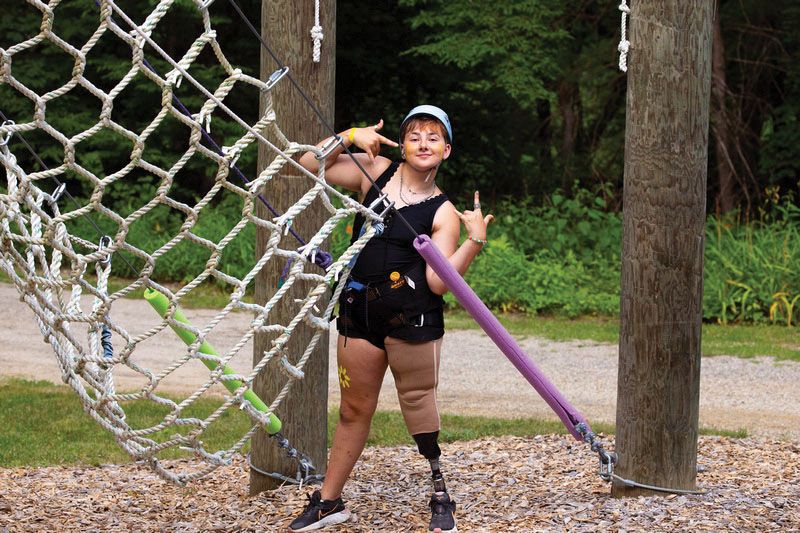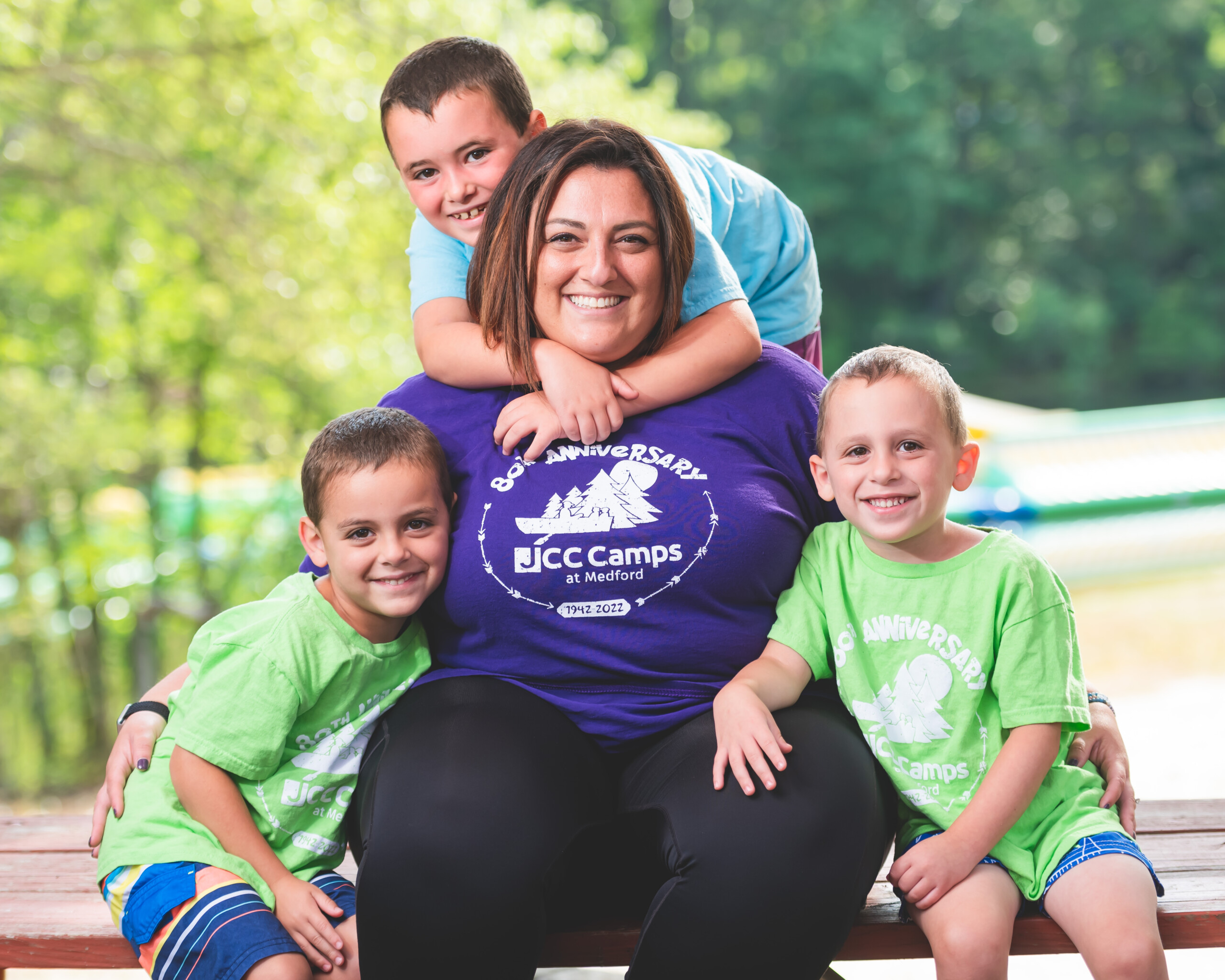Every camp counselor knows that caring for children requires a multitude of skills and roles — guardian, teacher, older sibling, mentor, therapist, cheerleader, peacemaker, best friend.
Transform young adults into caring counselors and they may transform children’s lives. This process begins in pre-camp staff training that lasts from three days to three weeks, depending on the camp program and the supervisory level of staff.
Building Community
“Each counselor must understand that he or she is the most influential person in a child’s life while that child is at camp,” says Cindy Powell, director of Miquon Day Camp in Conshohocken, PA.
Powell’s counselors learn to employ inclusive conflict resolution and community-building strategies rather than imposing solutions. She also engages a psychiatrist to brief counselors on developmentally appropriate behaviors at different ages.
Typical camp staff training blends child development and safety workshops with team-building exercises. Teri Valente, program director for Camp Arrowhead, a day and overnight camp in Lewes, DE, says the goal is “to generate a cohesion of mission, build camaraderie and equip staff to give our campers the best care.” In one activity, Valente has alumni counselors return to share campfire cooking tips.
 Managing Risk
Managing Risk
More intense sessions occur in what Valente calls “Safe Camp,” when the whole staff discusses and roleplays issues such as bullying, abuse, disclosure, boundaries, staff dating and sexual harassment.
At Camp Dark Waters, an overnight camp in Medford, NJ, director Travis Simmons combines camp philosophy with health and safety topics. Simmons says, “We want our staff to believe that everyone is welcomed and accepted for who they are at camp — that we’re all part of a community and we’re all responsible to one another.”
Simmons incorporates emerging parental concerns into staff training. “We’ve covered bully prevention and food allergies for years. But as news focuses on the dangers of sun overexposure and insect bites, we want families to know that we take those issues seriously. This year, our nurses will spend more time on the proper application of insect repellent and sunscreen,” he says.
Cheryl Magen, president of the American Camp Association (ACA) Keystone Section, says, “Health, safety, and risk management should be the top issues for staff training. The goal is to get young staff to understand their role and responsibility and to think proactively about managing the risks of camp.”
Top Topics
Making a day or overnight camp a physically and emotionally safe place is serious business. Each March, camp directors nationwide meet in Atlantic City at an ACA conference where youth development experts share information that will shape summer staff training.
Among the top topics at this year’s conference was inclusion. Both Powell and Simmons say that in recent years, they have seen an increase in campers with mild autism, Asperger syndrome and other special needs, and they work hard to include children with autism spectrum disorders in their camp community.
Other top sessions focused on social media. Powell says, “Because we have a lot of youth from ages 12 to 18 at camp, we’ll be talking about how our camp is represented online, and we’ll discuss good and poor choices that youth make when using social media.”
Powell, who use ACA’s “Don’t Laugh at Me” anti-bullying program in staff training, knows that camps have to address live and cyber-bullying during and after the camp season. At the ACA conference Joel Haber, PhD, author of Bullyproof Your Child for Life, advised camp directors to train staff to recognize the signs of relational aggression and teach them skills to manage its associated behaviors.
 A Positive Tone
A Positive Tone
An oft-cited Yale University study shows that camp staff who use a positive tone when speaking to campers and delivering instructions to fellow staff — instead of a neutral, negative, or stressed tone — are better at holding campers’ attention, garnering loyalty and forging social connections.
At Paradise Farm Camps, a traditional day camp in Downingtown, PA, director Rick Kone trains staff to be intentional in all that they do. “Instead of making ‘to do’ lists, this year we are asking staff to make ‘to be’ lists,” Kone says. “If I ask a counselor what he is doing, I want him to say ‘we are working on our teamwork by playing soccer,’ instead of just ‘playing soccer.’”
Kone plans to train staff in positive outlook processing, which teaches how to discuss, realize and work towards a problem’s possible outcomes, instead of focusing on the problem. His goal is for each staff member to articulate the camp’s mission of connecting children to the outdoors and helping children realize the possibilities of their own potential.
“We want staff to understand that even if camp is tons of fun, what we do here is true youth development,” he says. “Our campers’ goal is to have fun. The staff’s goal is to teach, guide and inspire campers as they have fun.”
Ellen Warren is a Program Associate with the American Camp Association’s Keystone Section, serving Pennsylvania and Delaware families and camps. Learn more at www.acakeystone.org






